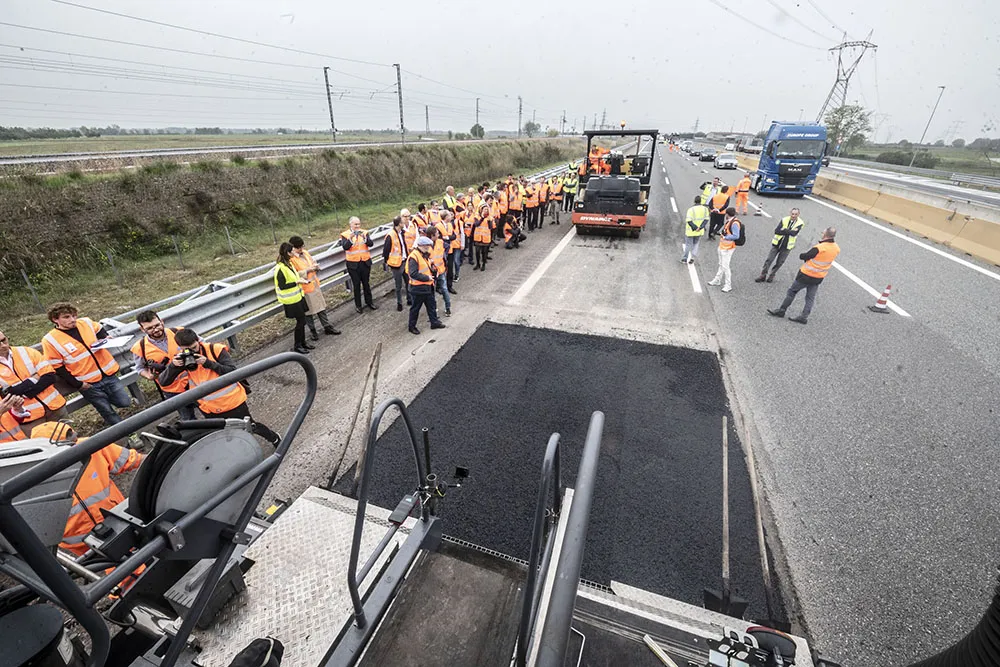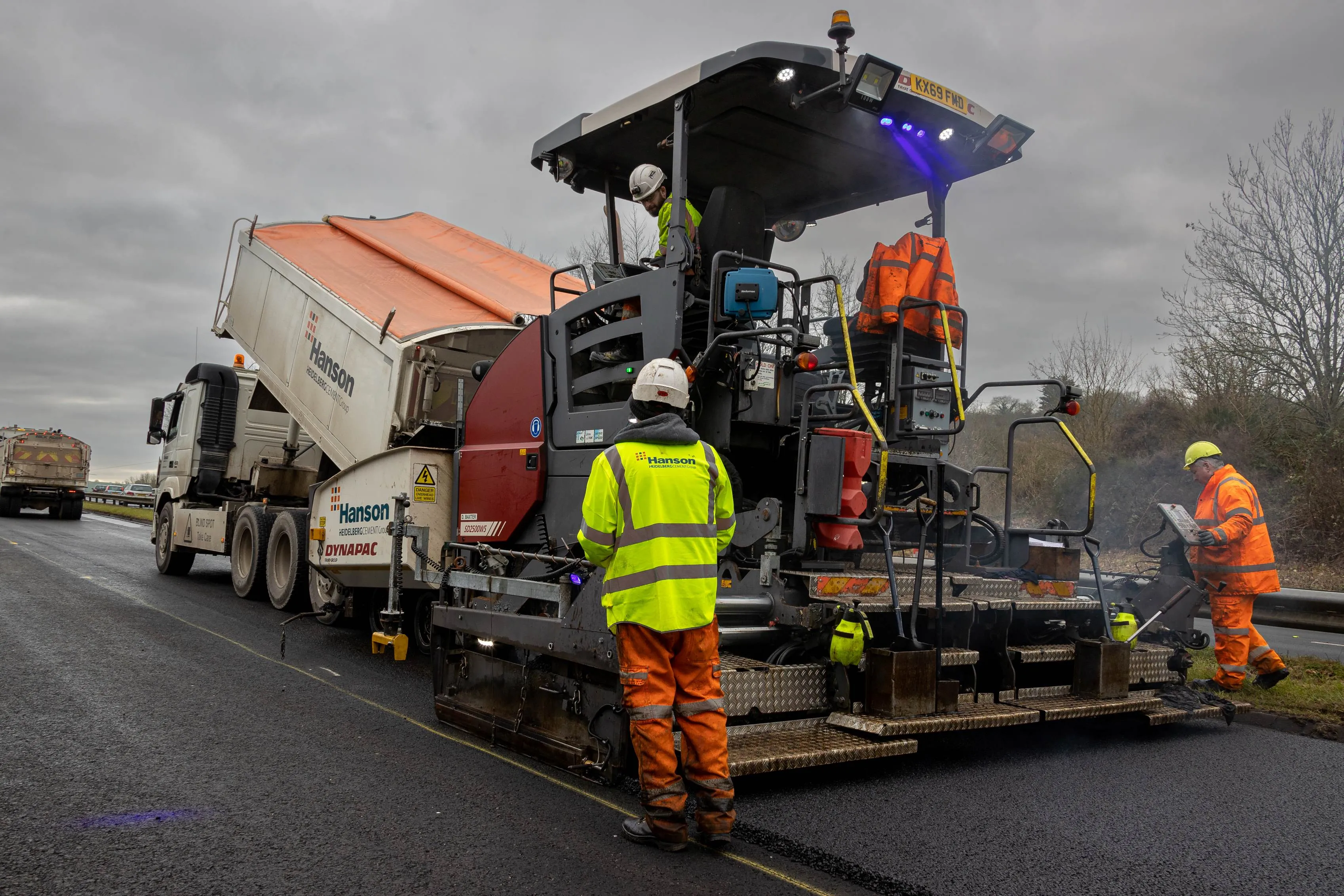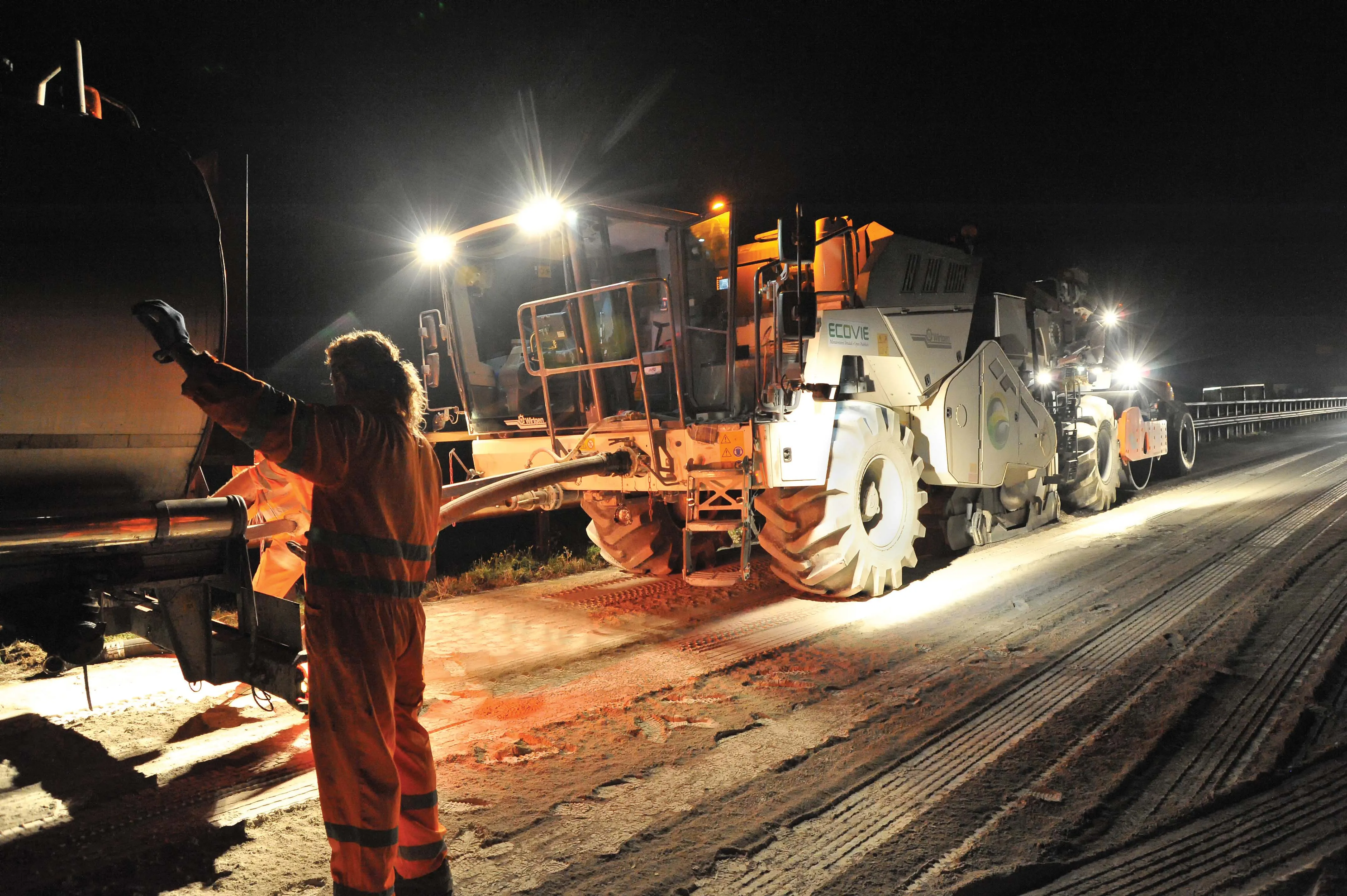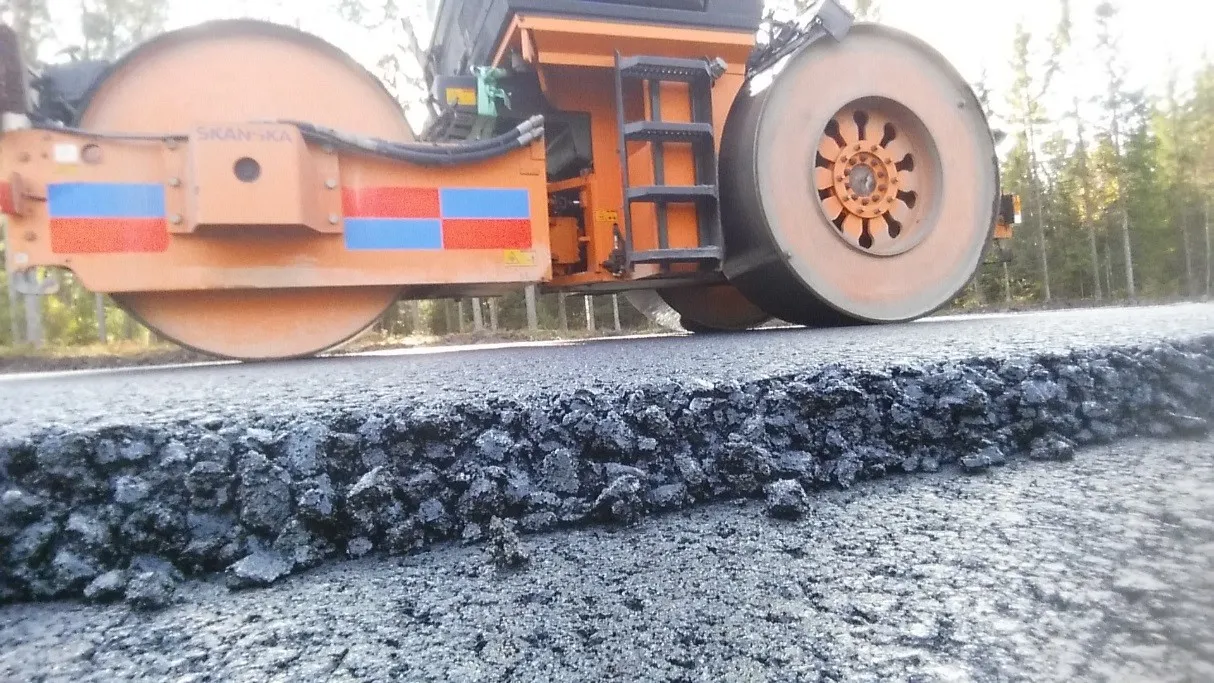
“I was talking about green products 15 years ago, but back then, the idea of recycling plastics into roads would have been seen as crazy by most contractors,” says Iterchimica CEO Federica Giannattasio.
Today, one of Iterchimica’s most recent and exciting products is Gipave. Over a six-year research and development programme, Iterchimica worked with graphene supplier Directa Plus, G.ECO and the University of Milan Bicocca to create an additive that combined graphene with polymers from waste plastics. The result is road pavements that have better resistance to deformation and cracking and longer service lives.
“I think Gipave is one of our best products of the last few years because of the improved performance and the lower environmental impact,” says Giannattasio, whose father Gabriele founded Iterchimica in Bergamo in 1967 and whose siblings Mariella and Alessandro work alongside her as directors of the company.
Gipave uses hard plastics not usually recycled, such as toys, fruit crates and litter bins. Equally important, from a whole-life carbon and cost perspective, is the increased longevity of the carefully engineered additive to pavements.
“Gipave has a very long life; that is the value proposition,” says Giannattasio. “If you skip one maintenance cycle, you are saving money, energy and materials too. It is very important to think about long-lasting roads.”
The first section of Gipave was laid on the Via Ardeatina outside Rome, Italy, in 2018, and there have been several more trial sections constructed since in Italy, the UK and Brazil. One of the latest applications sees the combination of Gipave with high proportions of recycled asphalt, or RAP, on the A4 motorway between Turin and Milan. This is a major project following a 2km trial stretch.
The A4 project will see the repaving of 250km - 125 km per direction - of the slow lane on the motorway. The lower layers of the road will contain 70% RAP, whereas the surface layer is an open-graded asphalt with PMB technology.
According to an LCA analysis carried out by the University of Bologna, Department of Civil, Chemical, Environmental and Materials Engineering, this will lead to a 38.5% reduction in carbon emissions, compared to a traditionally paved project, the reuse of 1,500tonnes of hard plastic and a 75% increase in pavement durability.
Iterchimica has many other ‘green’ products in its range. Some 20 years ago, it started work on its rejuvenators, which enable higher proportions of RAP in asphalt mixes. Today, its range of Iterlene ACF GREEN rejuvenators is bio-based. Other ‘green’ additives include CHS Anti-ageing to fight the effects of oxidisation, Iterlow for warm mix asphalt, Winterpave, which prevents ice forming on a road surface, Itersilens, which uses crumb rubber to create a noise-reducing pavement and Itertio2, aimed to reduce air pollutants.
Iterchimica has a turnover of around €25million a year and growing and employs around 70 people. Aside from its home market of Italy, Iterchimica exports its products to Eastern Europe and North Africa and has growing markets in the US and the UK.
Looking forward, Iterchimica will continue to find new ways to combine waste materials and specialist additive technology, says Giannattasio. “Although it was frustrating back then when nobody understood our message about the environment, I believe that all the years spent developing our range of green products are now really starting to pay off.”









